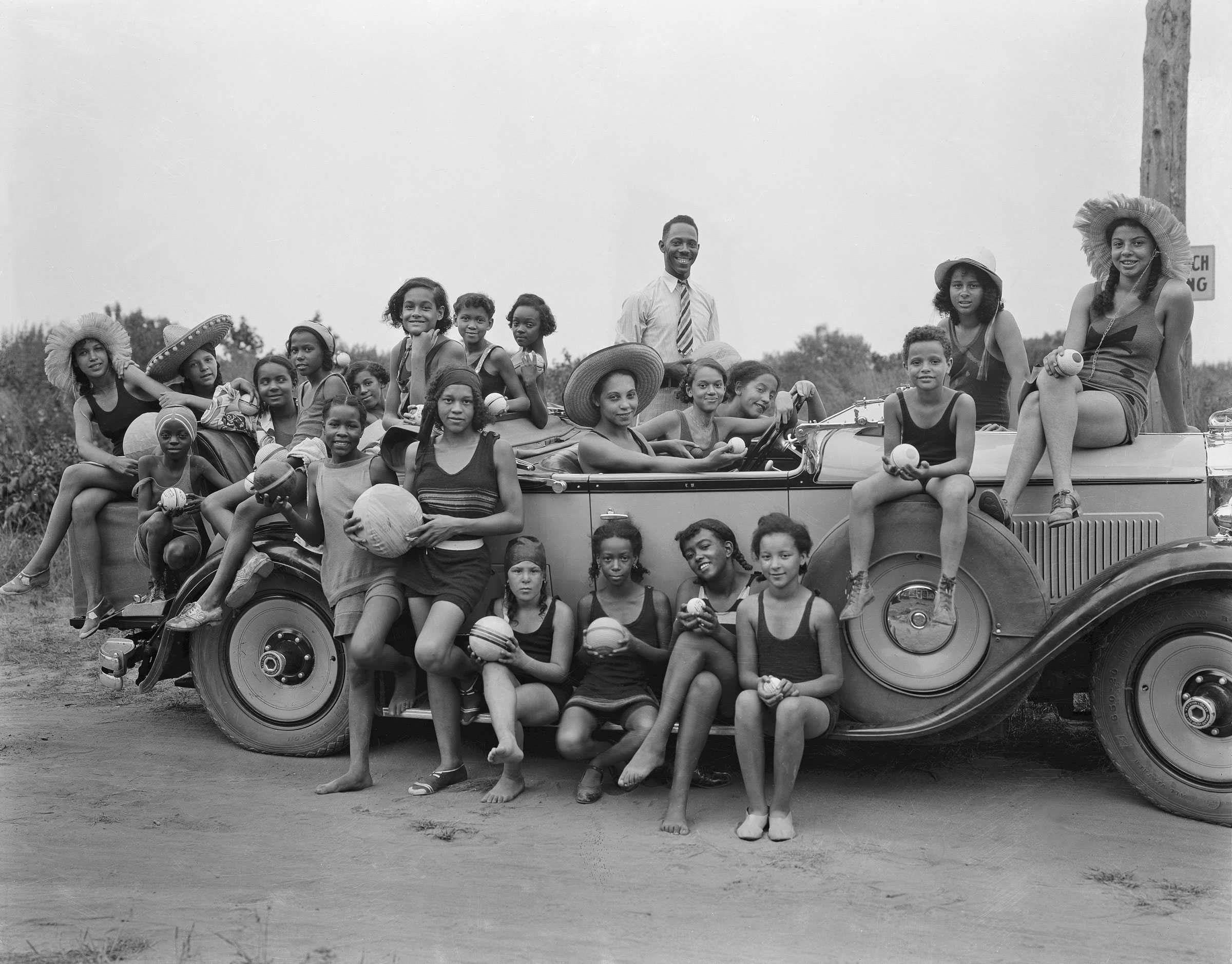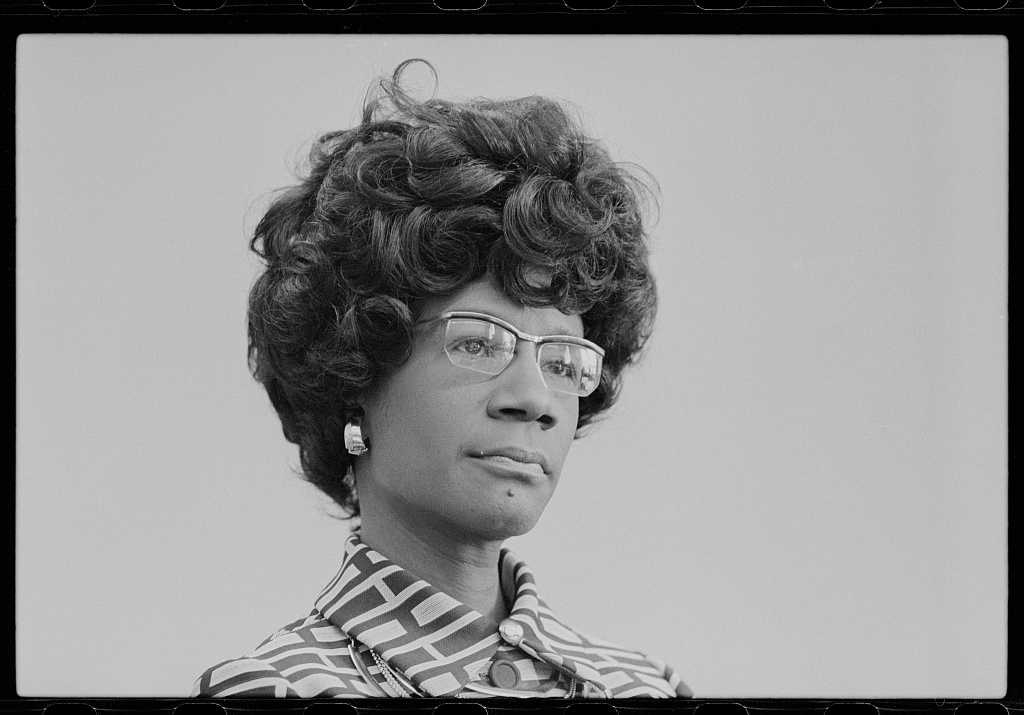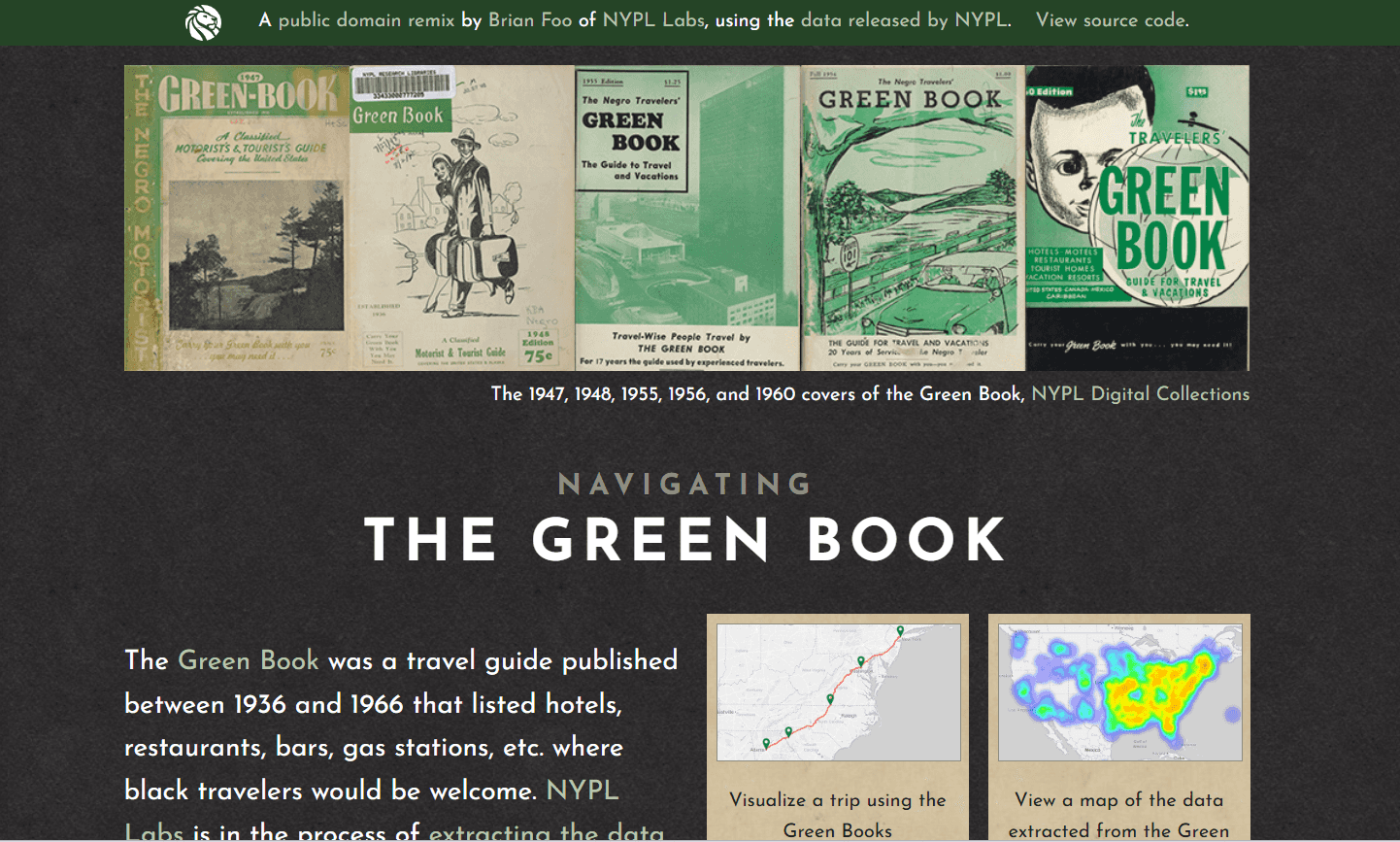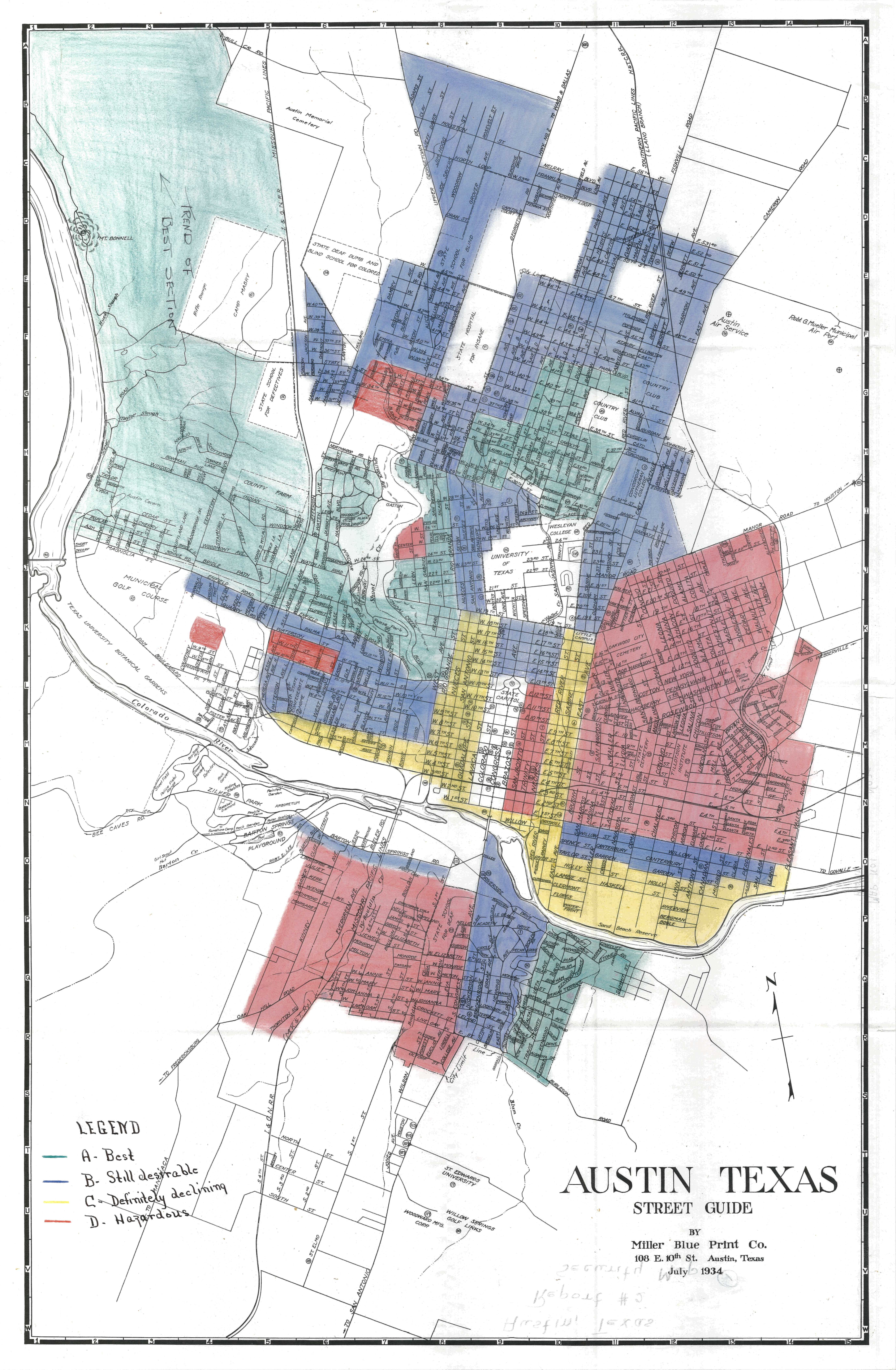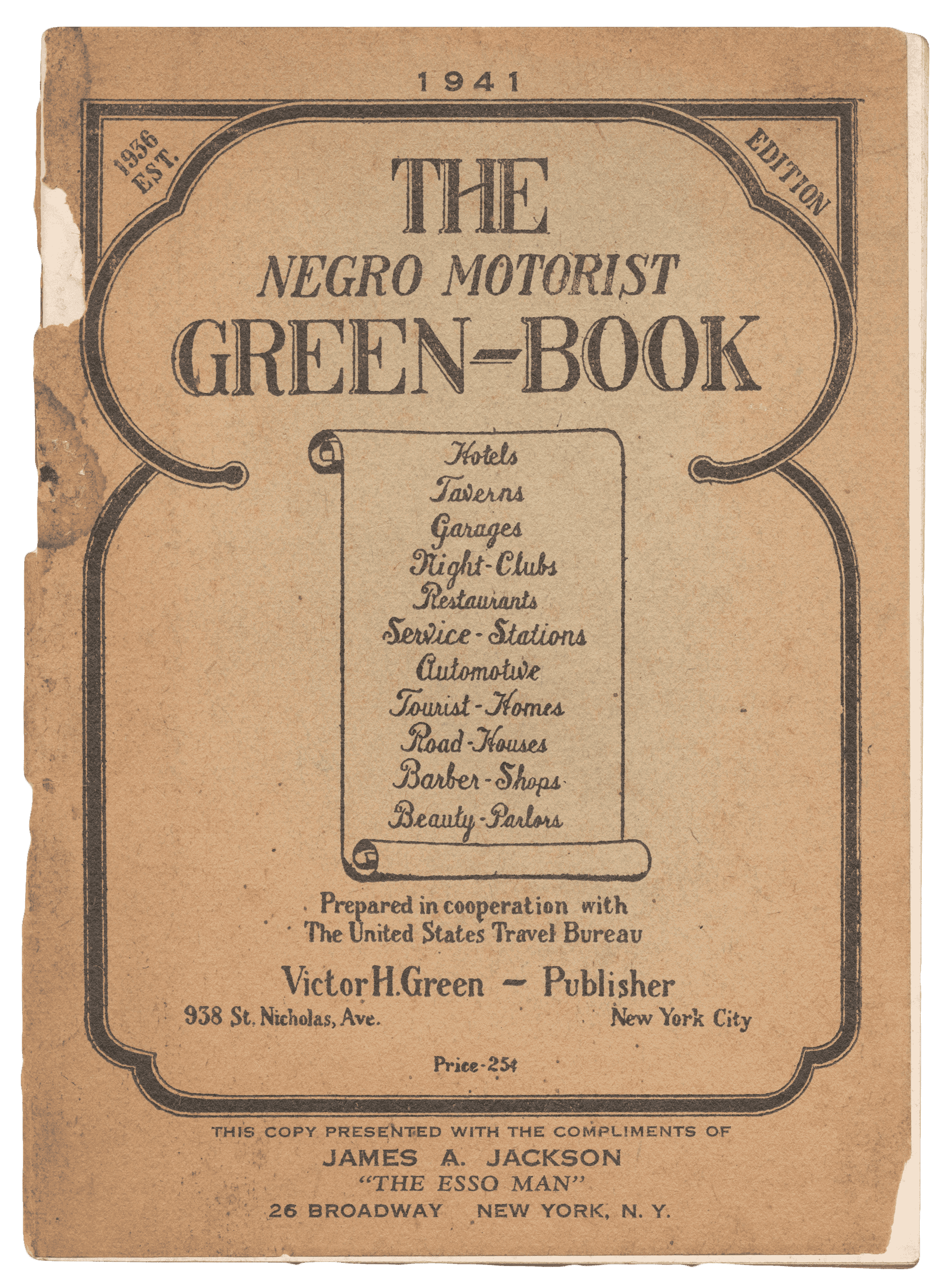Chapter 6
Navigating a Segregated Reality
Segregation did not stop African Americans from building vibrant communities. Black Americans did the same things most Americans did—they visited with friends and family, organized social functions, went to the beach, and attended church. Though segregated, the worlds they built provided a safe haven from insults, mistreatment, and violence.
During the First and Second World Wars, many African Americans developed a new cultural consciousness. After having defended democracy abroad, many returned seeking to defend their rights as American citizens and were committed to change. This new spirit was sometimes referred to as the “New Negro.” Many white Americans resented this change and fought to maintain the racial and social status quo. Mob violence and race massacres against Black communities swept the nation.
African American Home Life
Men running with a football in front of two houses, ca. 1920
Young sharecropper and his first child, Hillside Farm, North Carolina, 1939
African Americans seized every opportunity to minimize segregation’s harms. Family, friends, and community and home life were a haven, and African Americans gathered on porches, front steps, and street corners to unwind and reconnect. Laughter, singing, and political or social debates were other ways African Americans coped with a society that devalued them.
Zollie Lyon and family at home, North Carolina, 1939
Gathering at Home
Common in the South, dogtrot houses consisted of two buildings connected by a breezeway. The floor plan allowed cool air to circulate and enabled people to gather together at the end of the day.
Black Beaches and Resorts
As African Americans settled in cities, they searched for places to escape the heat and urban bustle. A growing number spent time at resorts. Beaches and resorts that catered to African Americans flourished: Idlewild in Michigan, American Beach in Florida, Bruce’s Beach near Los Angeles, California, Oak Bluffs in Martha’s Vineyard, Massachusetts, became popular destinations for Black vacationers.
Making Safe Travel and Accommodations
Travel Guide
More than many Americans, African Americans needed to plan ahead before they traveled. Hotels, inns, restaurants, and public recreational areas were not always open to Black travelers. Many African Americans planned overnight stops at the homes of family or friends and packed food for their trips, as traveling without food might mean going hungry or risking a confrontation at a diner or restaurant.
Sign for the Booker T. Motel
Welcoming Guests
By indicating that Black guests were welcome, Black-owned motels like the Booker T took the guesswork out of deciding where to stay.
